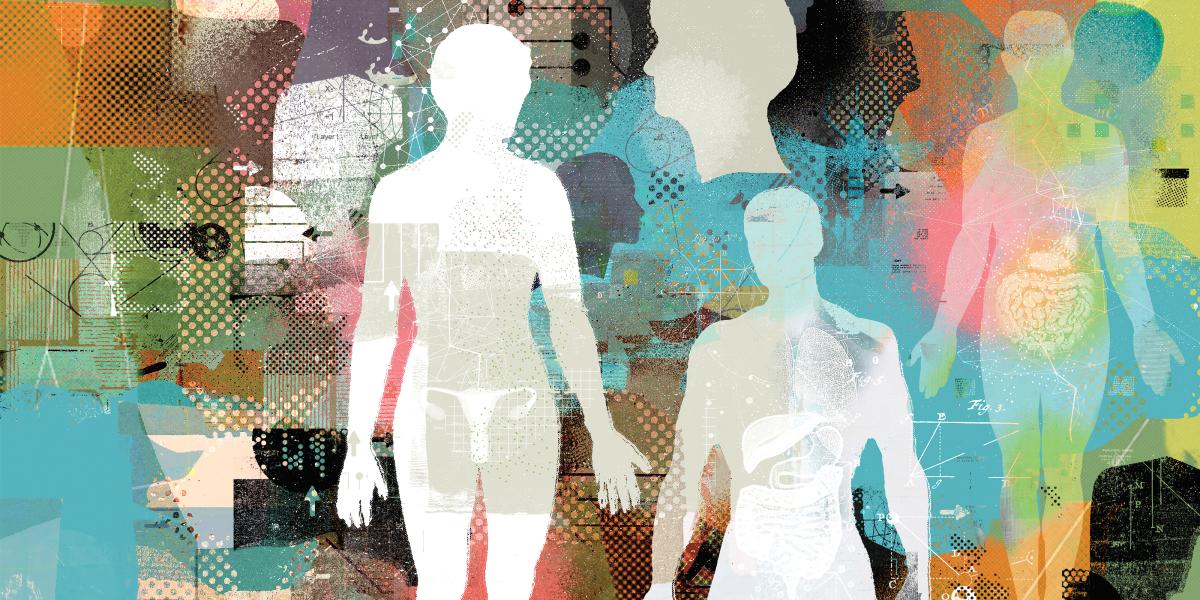Meet Your Microbiomes
We're arguably more parts microbe than human—and our health depends on their health.
We tend to think of ourselves as ourselves: a collection of DNA-directed human cells that make up our bodies and carry out life’s important processes. Only we need help. A lot of help. In sheer numbers of cells, we’re arguably more parts bacteria and other microbes than human. That universe within is called the microbiome— actually multiple microbiomes inhabiting different parts of the body. Without them, we couldn’t live.
Science is just now getting a handle on the body’s microbiomes and their surprising impacts on human health. It’s not easy work.
“We’re studying the whole complexity of the human body. We’re also studying the whole complexity of billions of microbes of hundreds of different species—each one of them with their own genes and their own proteins,” says Jotham Suez, PhD, MSc, an assistant professor in the W. Harry Feinstone Department of Molecular Microbiology and Immunology.
Teasing meaning from that complexity, researchers are already overturning assumptions about disease susceptibility, drug effectiveness, and other issues. One example: Suez found that probiotics can have positive, negative, or no effects on an individual, depending on how their microbiome responds to the probiotics.
Working on this new frontier, scientists are gleaning new microbiome insights for improving human health.
Sources: Anne Burke, MD, associate professor, Obstetrics and Gynecology in JHSOM and Population, Family and Reproductive Health; Subhra Chakraborty, PhD, MPH ’13, MSc, associate scientist, International Health; Laura Ensign, PhD, associate professor, Ophthalmology, and Obstetrics and Gynecology in JHSOM; Daniel Erchick, PhD ’17, MPH ’12, assistant scientist, International Health; Khalil Ghanem, MD, PhD ’08, professor, Medicine in JHSOM and PFRH; Cynthia Sears, MD, professor, Medicine in JHSOM and Molecular Microbiology and Immunology; Jotham Suez, PhD, assistant professor, MMI; Susan Tuddenham, MD, MPH ’09, associate professor, Infectious Diseases in JHSOM and Epidemiology
